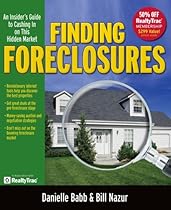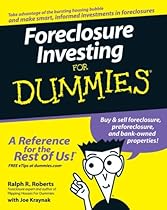by Broderick Perkins
© 2007 DeadlineNews.Com
Deadline Newsroom – If it takes a village to raise a child, what happens when the village is fragmented by foreclosure?
In Cleveland, OH, more than 10,000 families -- one in eight of all homeowners in the city -- will face eviction this year according to Claudia Coulton, co-director of the Centre for Urban Poverty at Case Western Reserve University in Cleveland. One in ten homes in the city is already vacant and boarded-up homes are attracting vandals, vagrants and other crime.
Auto arson is on the rise in Central Florida and law enforcement is tying the growing crime wave to the housing market. "There's a lot of foreclosures going on right now. People can't afford the cars they once used to be able to afford. So in order to get out of the payment they'll burn the car," Bill Newman of the Bureau of Fire and Arson told a local television reporter.
In San Jose, CA, vector control officials suspect the increased incidence in potentially deadly West Nile Virus this summer was due, at least in part, to unattended swimming pools in vacant homes shuttered by foreclosure. Aerial surveillance spotted 200 algae-blackened pools this summer, three times as many as 2006. West Nile Virus cases were up in all of California by 40 percent this year. The San Jose pools were quickly treated, but the conditions attract mosquitoes, which carry the disease.
Housing woes are not just undermining the economy, they are also unraveling the social fabric of the nation.
Studies have long associated homeownership with reduced crime, better educated kids, higher incomes, less reliance upon welfare, more politically active residents and even reduced teen pregnancy, among other benefits.
It's not surprising then that the positive effects of homeownership are vanishing with growing declines in homeownership, especially where there are concentrations of lost homes.
The 68.2 percent rate of homeownership nationwide in the third quarter this year was as low as its been since the second quarter of 2003 when it was 68.0, according to the U.S. Census. Numerous studies have reported 2 million or more homeowners will lose their home by the end of next year.
The projected losses are largely due to come-on adjustable rate mortgages (ARMs), subprime loans and other "creative" financing tools fitted with monthly mortgage payments that increase over time.
Foreclosures, now nearly 100 percent higher than a year ago, according to RealtyTrac.com, are also the result of borrowers and lenders staking the ability to repay the loan on the cost of the monthly mortgage payment at the onset of the loan, when "teaser" interest rates -- and the mortage payment -- are lowest.
While there's been much discussion about how the foreclosure pandemic has impacted investment financials, credit and the economy in general, social concerns are rising too.
ACORN (Association of Community Organizations for Reform Now) regularly reports "Foreclosures don’t just hurt individuals and families, they hurt entire neighborhoods and communities, leaving homes abandoned and vulnerable to vagrancy and crime."
That's because property tax revenues, bolstered by homeownership, help provide city services. With foreclosed properties go city tax revenues, making it harder to provide good schools, police protection, code enforcement and other services.
Recently, in "Foreclosure Exposure 2: The Cost to our Cities and Neighborhoods," ACORN analyzed data from private and federal sources to predict the potential economic impact of foreclosures on 96 metropolitan areas.
The report says property owners, local governments, lenders and investors alike in the 96 areas stand to lose more than a combined total of $25 billion.
The dollar cost includes the economic impact as well as the cost of social degradation stemming from lost social services, under funded education, and increased crime, among other social factors.
"There Goes the Neighborhood: The Effect of Single-Family Mortgage Foreclosures on Property Values" by Dan Immergluck, at the Georgia Institute of Technology and Geoff Smith, at the Woodstock Institute, quantifies the social damage in the crime category.
The report says an increase in the foreclosure rate to about 2.8 foreclosures for every 100 owner-occupied properties in one year corresponds to an increase in neighborhood violent crime of approximately 6.7 percent.
ACORN has spent decades fighting crime and blight associated with vacant houses, and community leaders are concerned about the impact of foreclosures on their neighborhoods.
Real estate agent, mortgage broker, appraiser and owner of Oakland, CA-based BP & Associates, Bill Pegg, has seen his business drop off by 70 percent or more in recent years as property values have fallen by as much as 20 percent due to soaring foreclosures.
He'd like to see investors who purchased foreclosed properties, but are now unable to sell them, rent them out to cut down on the number of vacant properties.
"This (vacant properties) can create lots of crimes, it can lower school attendance, smaller businesses won't have a basis for operation and larger businesses won't want to come to the area," says Pegg, a community activist who regularly visits city council meetings and Oakland elected officials to air his views.
RealtyTrac recently listed nearly 3,300 bank-owned properties, more than 6,700 pre-foreclosure homes and 1,764 properties on the auction block in Oakland.
"The real challenge for communities is working, not just through the fairly large amount of foreclosures now and for the next year or two, but the real mountain of foreclosures behind that coming forward," said Pegg.
Pegg's concerns are not new.
"The Social Consequences of Homeownership," a study commissioned by the Homeownership Alliance, a coalition of organizations that beats the drum for the American housing system, found:
• Children of homeowners are likely to perform higher on academic achievement tests and are more likely to finish high school than kids who don't live in owner-occupied homes.
• Children of homeowners have fewer behavioral problems in school and are less likely to become pregnant as teenagers.
• Political activity, such as voting and participation in civic organizations, is higher among homeowners.
• Homeowners are more satisfied with their lives and are happier.
• Recent research suggests that high levels of homeownership in neighborhoods enhance property values.
Likewise "Homeownership Improves Lifestyles for the Poor in Distressed Neighborhoods: Does This Make Sense?" a study conducted by the Institute for Policy Studies at Baltimore-based John Hopkins University, for the Fannie Mae Foundation, found:
• Continuous homeownership reduces the likelihood of idleness (not working, attending school or caring for children) by 5 percent.
• Continuous homeownership may reduce welfare dependence by about 5 percent.
• A 10 percent increase in the neighborhood homeownership rate is estimated to increase early adult annual earnings by $679.
• A 10 percent increase in neighborhood homeownership rate reduces a homeowner's daughter's chance of a teen out-of-wedlock birth by 2.5 percent.
"These foreclosures and the vacancies they create will have a negative impact on both the business and social community of every city where it happens," says Pegg.
• It Takes Homeowners To Raise A Village
• Counseling, Home Ownership Improve Lifestyle
• Home Ownership Improves Lifestyles
© 2007 DeadlineNews.Com
Broderick Perkins, an award-winning consumer journalist of 30 years, is publisher and executive editor of San Jose, CA-based DeadlineNews.Com, a real estate news and consulting service, and the new Deadline Newsroom, DeadlineNews.Com's new backshop. In both cases, it's where all the news really hits home.
DeadlineNews.Com's Editorial Content Is Intellectual Property • Unauthorized Use Is A Federal Crime
Thursday, November 8, 2007
Foreclosures Undercutting Social Benefits of Homeownership
From The
Deadline Newsroom
on
11/08/2007 12:52:00 PM
![]()
Labels: Broderick Perkins, Deadline Newsroom, DeadlineNews.Com, foreclose, foreclosures, homeownership, subprime, vacant homes
Subscribe to:
Post Comments (Atom)


4 comments:
Hi! I work at CurrentForeclosures.com a foreclosures site. It is scary to realize that the rise in property foreclosures also led to a corresponding increase in neighborhood crimes.
A damn fine piece of journalism. Lew Sichelman, Syndicated Housing Columnist.
Homeownership does have social benefits where the occupants have an ownership mentality. Once upon a time, families would scrimp, scratch and save to be able to make a down payment for their first home. They had their own blood sweat and tears invested in the place. That is where the social benefits of home ownership became known. The lender was local, and the family knew him. there was a personal connection in the whole housing cycle and we all reaped the benefit.
The new Wall Street mortgage way ignored one very minor detail in lending called equity. During the housing inflation period, there were so many loans originated with no equity required for the loan to be made. This led to the occupants(I call them occupants because they have no ownership position) having no "skin" in the game. When the loan becomes mildly uncomfortable, they toss the keys to the lender having had housing for a lower cost than renting. They played the slots with someone else's retirement savings(the pension funds and 401k's that bought the loans) lost it all, and now they go rent again. Oh well....
This was compounded when so-called speculators bought multiple homes portraying themselves as owner-occupiers. I still wonder how the brilliant MBA's and the titans of Wall Street could turn all the 5-6 houses that a borrower had on his credit report into 5-6 homesteads. I can see how this kind of magic was rewarded with the multi million dollar Wall Street bonuses I read about the past few Decembers. Absolute magical genius! I guess that is why I am not an MBA. Or, perhaps, maybe Merrill, Bear Stearns et al should give some money back? I hope that the SEC know your customer rule gets invoked.
When the lender is a foreign entity, who cares if they get repaid? Well, the do nothing Congress is about to find out.
When the US cannot borrow overseas and our currency is in free fall, eventually we will get cut off even at the highest interest rates. Remember those 15% mortgage rates in the Carter years?
We (our Wall Street titans) packaged up all these mortgages and put a nice, big, safe Standard and Poor's AAA, highest quality,widows and orphans rating on them and peddled them to our best trading partners and our best lenders: the Chinese, the French, the Germans, the British, not to mention all the pension funds of our union, state and local employee pension funds. We promised them an interest payment and THEIR MONEY BACK. Who is making those phone calls: "Oh, by the way those nice mortgage backed bonds we sold you? You have no way of selling them because no one will buy them. It's OK, though Wall Street had their biggest bonus years ever 2004-2006." Again, I wonder if they are going to give that money back?
Would you lend the US any money in the future? The world is dumping dollars and it is a matter of time before our inflation rate starts...inflating. $100/barrel oil will be 200 euro/barrel oil, don't even think about paying your SUV oil bill in dollars they won't take them. What will our inflation rate look like at $5/gallon gasoline or $10/gallon when all they will take is euros?
We will see what the mortgage meltdown brings, but I do not have a good feeling in my gut.
This article is very timely and relevant. As I quote Cameron Muir, an economist, "Home sales are unlikely to fall much further..That being said we expect home sales not to decline much further."
But it's never too late, with the right business plan set up, it will lead to valuable outcome. This is what most counselors would give as an advise.
Post a Comment